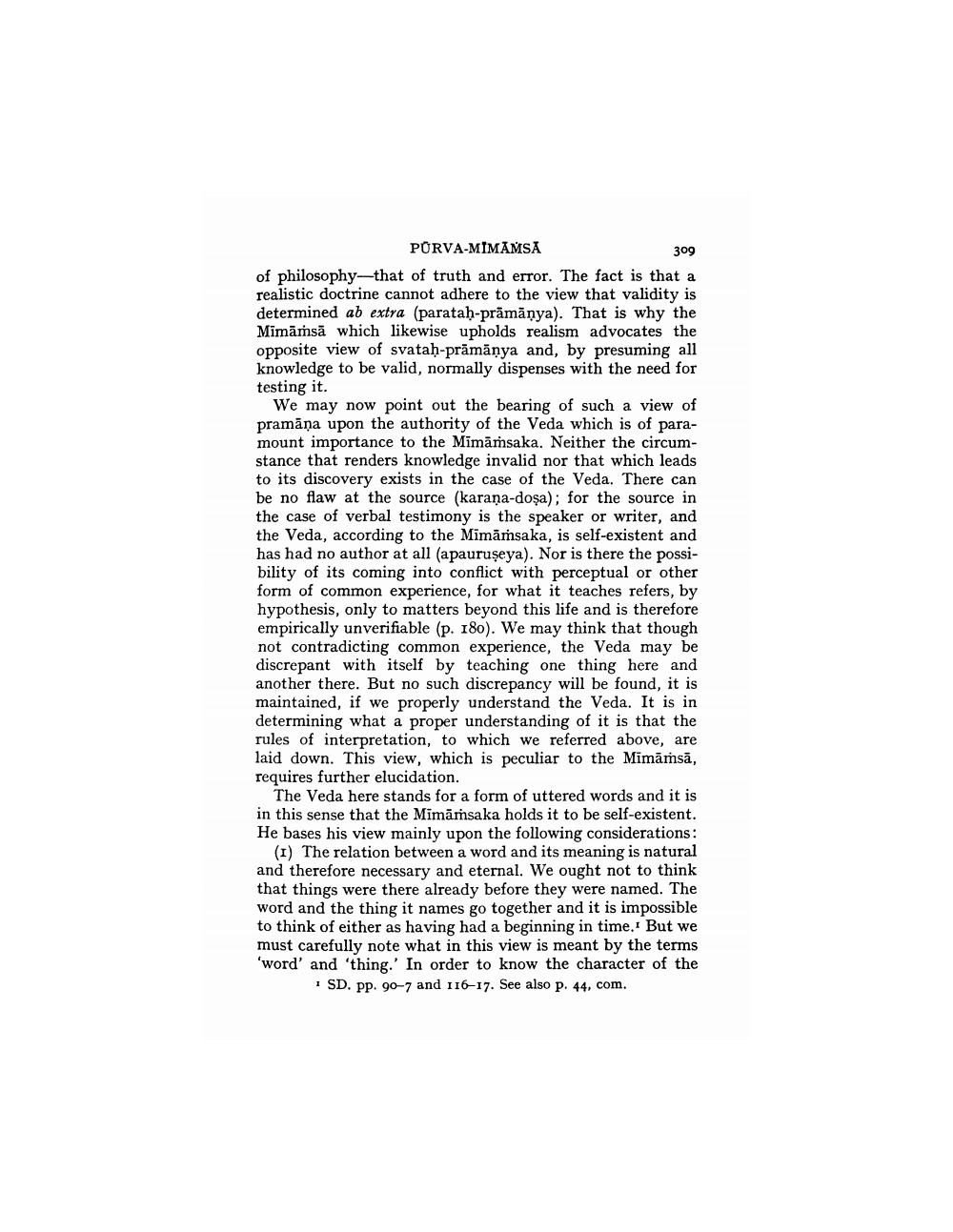________________
PORVA-MIMAMSA
309 of philosophy—that of truth and error. The fact is that a realistic doctrine cannot adhere to the view that validity is determined ab extra (paratah-prāmānya). That is why the Mimāṁsā which likewise upholds realism advocates the opposite view of svatah-prāmānya and, by presuming all knowledge to be valid, normally dispenses with the need for testing it.
We may now point out the bearing of such a view of pramāna upon the authority of the Veda which is of paramount importance to the Mimāmsaka. Neither the circumstance that renders knowledge invalid nor that which leads to its discovery exists in the case of the Veda. There can be no flaw at the source (karana-dosa); for the source in the case of verbal testimony is the speaker or writer, and the Veda, according to the Mimāmsaka, is self-existent and has had no author at all (apauruşeya). Nor is there the possibility of its coming into conflict with perceptual or other form of common experience, for what it teaches refers, by hypothesis, only to matters beyond this life and is therefore empirically unverifiable (p. 180). We may think that though not contradicting common experience, the Veda may be discrepant with itself by teaching one thing here and another there. But no such discrepancy will be found, it is maintained, if we properly understand the Veda. It is in determining what a proper understanding of it is that the rules of interpretation, to which we referred above, are laid down. This view, which is peculiar to the Mimāmsā, requires further elucidation.
The Veda here stands for a form of uttered words and it is in this sense that the Mimāmsaka holds it to be self-existent. He bases his view mainly upon the following considerations:
(1) The relation between a word and its meaning is natural and therefore necessary and eternal. We ought not to think that things were there already before they were named. The word and the thing it names go together and it is impossible to think of either as having had a beginning in time. But we must carefully note what in this view is meant by the terms 'word' and 'thing.' In order to know the character of the
· SD. pp. 90-7 and 116-17. See also p. 44, com.




